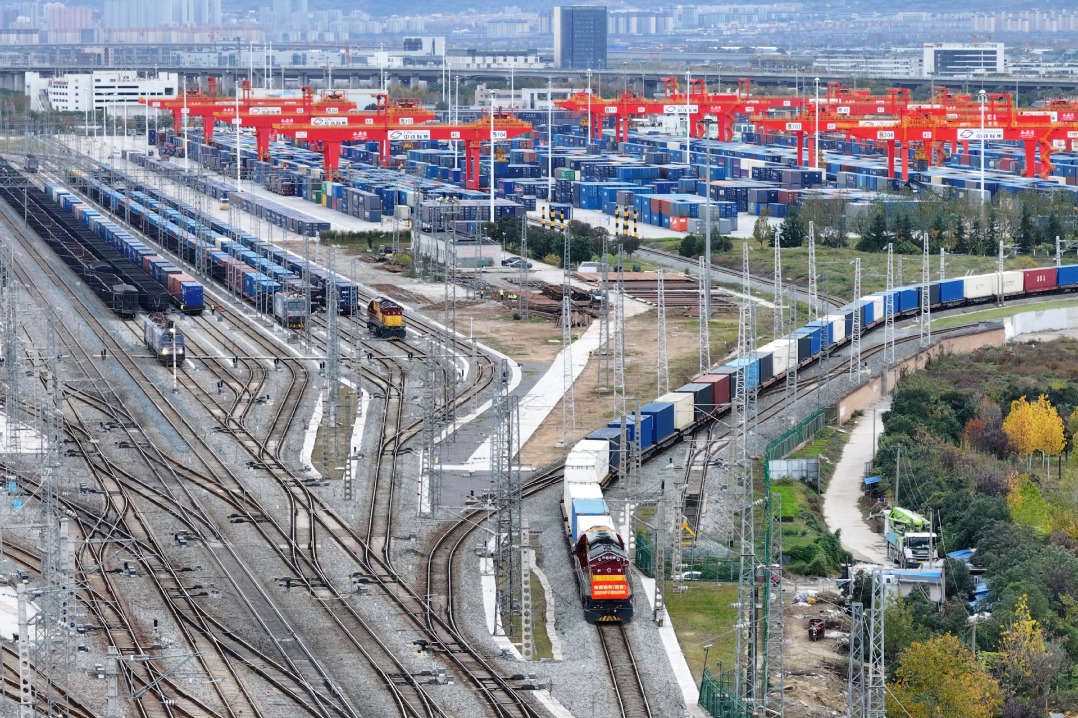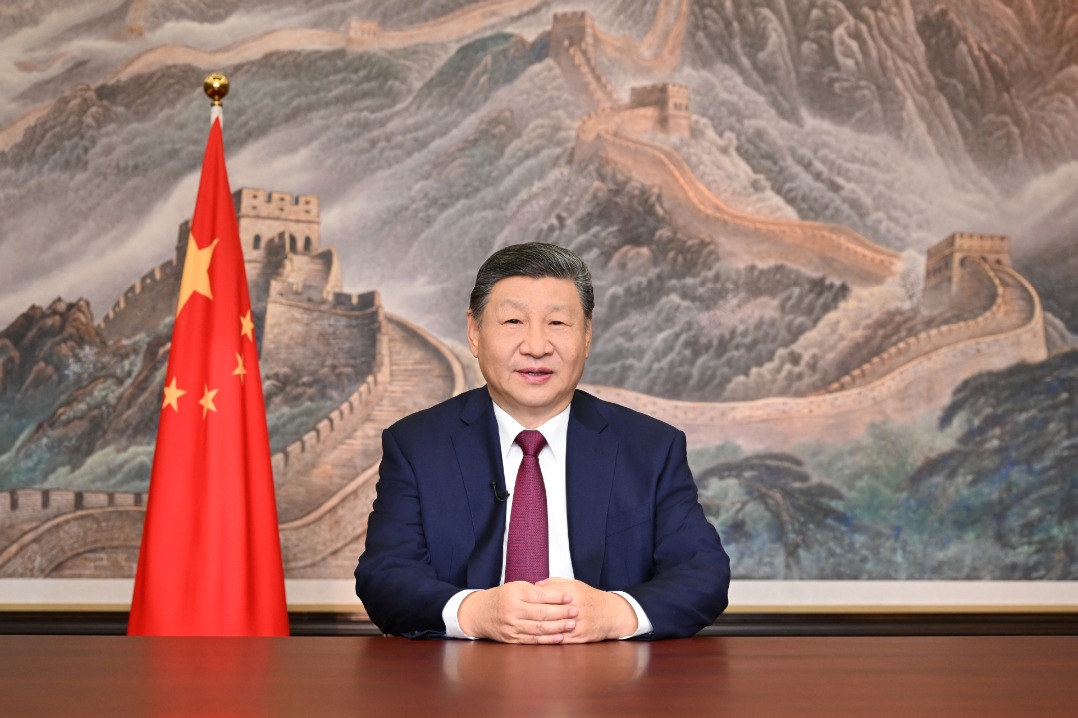China pushes market-based reform despite epidemic

You might think that setting up the basic institutions of business and market governance-the rules of the road, the software-would be easy compared to building physical infrastructure, developing technology or raising a nation's education level.
But it turns out that building efficient institutions and commercial governance is the hard part of development.
Many nations have failed to develop and some currently developed nations are in danger of regressing because they have been unable to reform.
In his famous book, The Rise and Decline of Nations, late University of Maryland economist Mancur Olson argued that progress is stopped by entrenched groups of people or companies with concentrated interests who use their power to block efficient reforms that would be good for the whole of society but bad for them.
On the other hand, the unique strength of China's reform and opening-up process has been that China's government has, for over 40 years now, steadily pushed the gradual institution-building that allows markets to work well. In recent weeks, China's leaders have repeatedly emphasized that the economic problems caused by COVID-19 will not derail the continuation of this market-based reform process that made the nation's spectacular economic growth possible.
In a discussion with national political advisers at the third session of the 13th National Committee of the Chinese People's Political Consultative Conference, President Xi Jinping emphasized that the country is committed to seeing that the market plays the decisive role in resource allocation and that the government plays its role better, as reported by Xinhua News Agency.
"The practices in reform have made us realize that we must under no circumstances turn our back on addressing blindness of the market, and we must not return to the old path of a planned economy," Xi said.
China's leaders have been stepping up the push for fundamental market-based economic reform since Xi's first year in office. The Third Plenary Session of the 18th CPC Central Committee in 2013 set out a strong agenda to restructure the role of the market, giving market forces a "decisive" role in allocating resources, instead of the "basic" role stated in earlier documents.
As in all countries, the government retains the core functions of macroeconomic management, market regulation, provision of public services and environmental protection.
The business environment and the health of the private sector are critical to China's economy. The World Economic Forum uses the numbers 60/70/80/90 to describe the importance of the private sector to China's economy: "(Private companies) contribute 60 percent of China's GDP, and are responsible for 70 percent of innovation, 80 percent of urban employment and provide 90 percent of new jobs. Private wealth is also responsible for 70 percent of investment and 90 percent of exports."
At the two sessions this year, Premier Li Keqiang stressed that the government is taking strong steps to aid private businesses, especially small and medium-sized enterprises that have been hard hit by the coronavirus. Li also called for greater steps forward in reform and opening-up to overcome obstacles, promote fair competition. He also called for rolling out more concrete steps to help businesses and create a market-oriented, law-based and internationalized business environment.
A recent guideline released by the CPC Central Committee and the State Council, China's Cabinet, stressed that the country will focus on improving the system of property rights and pursuing market-oriented allocation of production factors.
In a very important move, the guideline outlined an agenda for deepening market-based reforms in the allocation of basic resources-land, labor, capital and data. Previously, markets have been dominant in consumption, production and intermediate-product markets, but the "commanding heights", especially land and energy, have been only partly marketized. The planned reforms should be a big step in improving efficiency by allowing the market to price these fundamental inputs.
The reforms announced last week are not a change in policy direction. They are a reinforcement of market-based policies formulated since Xi's first year in office and a confirmation that the novel coronavirus has not changed the reform orientation of economic policy.
Individuals and companies cannot plan and markets cannot work without a clear, reliable legal system. On many occasions, Xi has called for strengthening the rule of law. In 2017, he told the country's officials at all levels to take the lead in studying and observing the law and promoting the respect of virtue and law within society.
Recognizing again that bureaucracies need to reform in order to properly enforce commercial law, the Oct 28-31 Fourth Plenary Session of the 19th CPC Central Committee explicitly set, for the first time, "promoting modernization of the country's governance system and governance capacity" as the overall goal of comprehensively deepening reform.
Also, during the two sessions meetings, the National Development and Reform Commission reiterated that China will continue to treat foreign companies in a market-based and equal way. Pro-business policies will apply equally to foreign firms.
Last year, China announced a raft of new laws and regulations that further opened the nation's markets to foreign investors. A new Foreign Investment Law was designed to create a sound business environment and better protect the rights of foreign investors. China's financial sector is rapidly being opened to foreign competition. China also created a "negative list", allowing foreign companies to invest in any sectors that are not explicitly out of bounds.
Wang Shumei, head of the Civil Adjudication Tribunal No 4 of the Supreme People's Court, told China Daily on the sidelines of the two sessions that the top court has been working on legal documents and creating online platforms in judicial work to ensure the quality and efficiency of foreign-related case hearings despite the problems caused by the contagion.
This emphasis on reforms designed to improve the business climate is paying off. In the World Bank's Ease of Doing Business rankings, China moved up to number 31 globally, from 46 just a year earlier.
China's leaders have repeatedly stressed that the nation's future depends on upgrading the economy toward production of higher value-added products. To accomplish this and to continue to raise living standards, the government is implementing reforms that are needed to improve economic efficiency. The recent statements during the two sessions and by the State Council show that China is not letting the novel coronavirus interfere with its move toward a system based on the rule of law and a market-based allocation of resources.
The author is a senior staff commentator of China Daily.

Today's Top News
- New Year's address inspiring for all
- Xi congratulates Science and Technology Daily on its 40th anniversary
- Xi congratulates Guy Parmelin on assuming Swiss presidency
- China Daily launches 'China Bound'
- Manufacturing rebounds in December
- PLA wraps up military drills around Taiwan






























